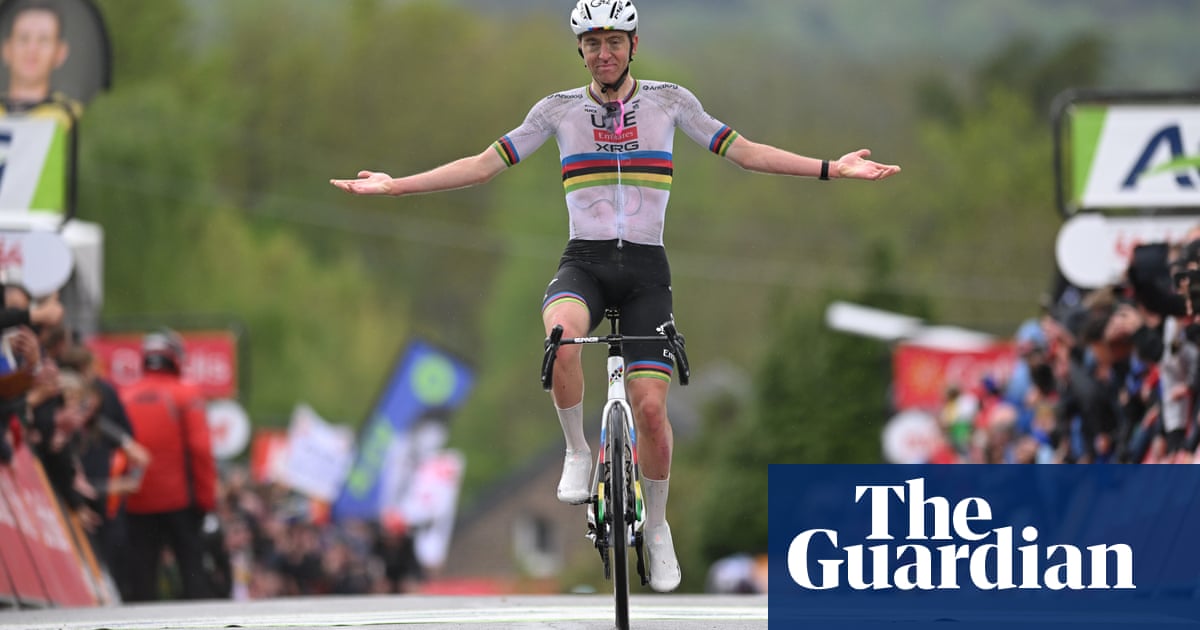The recent victory of Tadej Pogacar at the Flèche Wallonne provides an interesting lens through which to view the dynamics of competitive cycling and the narratives crafted around sports personalities. The report not only highlights Pogacar's athletic prowess but also subtly weaves in elements of rivalry and resilience.
Strategic Victory and Narrative Construction
Pogacar’s comeback from previous disappointments at the Paris-Roubaix and Amstel Gold Race positions him as a determined athlete who learns from past experiences. The emphasis on his strategic early attack during the race illustrates a narrative of tactical excellence. By framing his victory in this manner, the article creates a compelling storyline that elevates Pogacar's status in the eyes of fans and sports analysts alike.
Public Perception and Rivalry
The mention of Pogacar's main rival, Remco Evenepoel, adds depth to the narrative, suggesting a competitive rivalry that could excite fans and create a storyline for future events. This rivalry is key to maintaining interest in the sport, as fans often rally behind their favorite athletes. The article effectively plays into this dynamic, enhancing Pogacar's image as not just a champion but as a formidable competitor in a larger context.
Media Framing and Implications
In terms of what might be omitted or downplayed, the article does not delve into the broader implications of weather conditions on the race or how they might have impacted other competitors, which could offer a more rounded perspective. This focus on Pogacar's success may lead to an oversimplified view of the race dynamics, potentially overshadowing other athletes' performances.
Reliability and Manipulative Elements
The report appears reliable in its factual recounting of events, yet it can be argued that the language used serves to glorify Pogacar, possibly leading to a manipulation of public sentiment. This glorification may serve to attract commercial partnerships and boost viewership in cycling, indicating an underlying commercial motive behind the narrative framing.
Societal and Economic Impact
The excitement generated by Pogacar’s win could have ripple effects on the cycling community, potentially increasing interest in cycling events and boosting merchandise sales. Additionally, as Pogacar is a prominent figure in Slovenian sports, his victories can enhance national pride, impacting the social fabric within Slovenia.
Target Audience and Community Support
The article likely appeals to cycling enthusiasts and sports fans who appreciate stories of resilience and competition. By focusing on Pogacar’s achievements, it resonates with those who admire athletic excellence, particularly in the context of high-stakes races.
Global Context and AI Influence
While there’s no explicit mention of a broader geopolitical context, sports often reflect cultural identity and national pride. The narrative around Pogacar could contribute to Slovenia’s image on the international stage. In terms of AI involvement, it’s plausible that algorithms aiding in sports reporting influenced the style and focus of the piece, emphasizing key highlights and dramatic moments to capture reader interest.
Conclusion on Reliability
Overall, the article is factually sound but strategically crafted to enhance the appeal of Tadej Pogacar. The focus on his resilience and rivalry serves to stimulate interest in future races, while the language used could be interpreted as subtly manipulative, designed to shape public perception positively.
